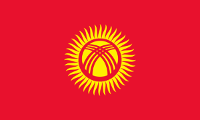Hungarian language, T-V distinction
Many languages have forms of ‘you’ that differ in politeness or relational closeness. That is, you use one form of ‘you’ when talking to a stranger on the street, and another form when talking to your child. So when I saw that Hungarian had te and ön, it seemed perfectly familiar and seemed to parallel Spanish nicely. But it turns out Hungarian is way more complicated than that, much too complicated for a first trip. If you are interested in the details, see the Wikipedia summary.
Hungarian language, indefinite vs. definite conjugation
Hungarian, like English, has indefinite and definite articles that indicate whether you are speaking about a specific object or a non specific object. For instance,
| Indefinite | a car | egy autó |
| Definite | the car | az autó |
Now here is a bit of fun. Hungarian also indicates by verb endings whether the object of the verb is definite or indefinite. Observe:
| Indefinite | I see a car | Látok egy autó |
| Definite | I see the car | Látom az autó |
Isn't that curious? The definiteness of the direct object is double coded. This distinction of definite/indefinite for the direct object is coded in all the verb forms. For instance, here is the complete conjugation of the verb ‘see’ in the present tense:
| Indefinite | Definite | |||
| Singular | Plural | Singular | Plural | |
| 1st | látok | látunk | látom | látjuk |
| 1st to 2nd | látlak | |||
| 2nd | látsz | láttok | látod | látjátok |
| 3rd | lát | látnak | látja | látják |
Lots of languages double code things, but this is the first time I've encountered it for definiteness in the verb. It's quite common to double code negativity in languages. For instance,
| Spanish | No sé nada. | Not I know nothing. | I don't know anything. |
| Russian | Ничего не знаю. | Nothing not I know. | I don't know anything. |
Hungarian language, day 3
I'm actually making good progress on my Hungarian. So far there is exactly one word that for some reason is causing me problems, although today I may finally have it down. It is the word for goodbye which is:
Yes, I know you are desperate to surpass my linguistic awesomeness, so you can hear and practice the pronunciation here.
Hungarian language, numbers 20-90
| 10 | tíz |
| 20 | húsz |
| 30 | harminc |
| 40 | negyven |
| 50 | ötven |
| 60 | hatvan |
| 70 | hetven |
| 80 | nyolcvan |
| 90 | kilencven |
| 100 | száz |

